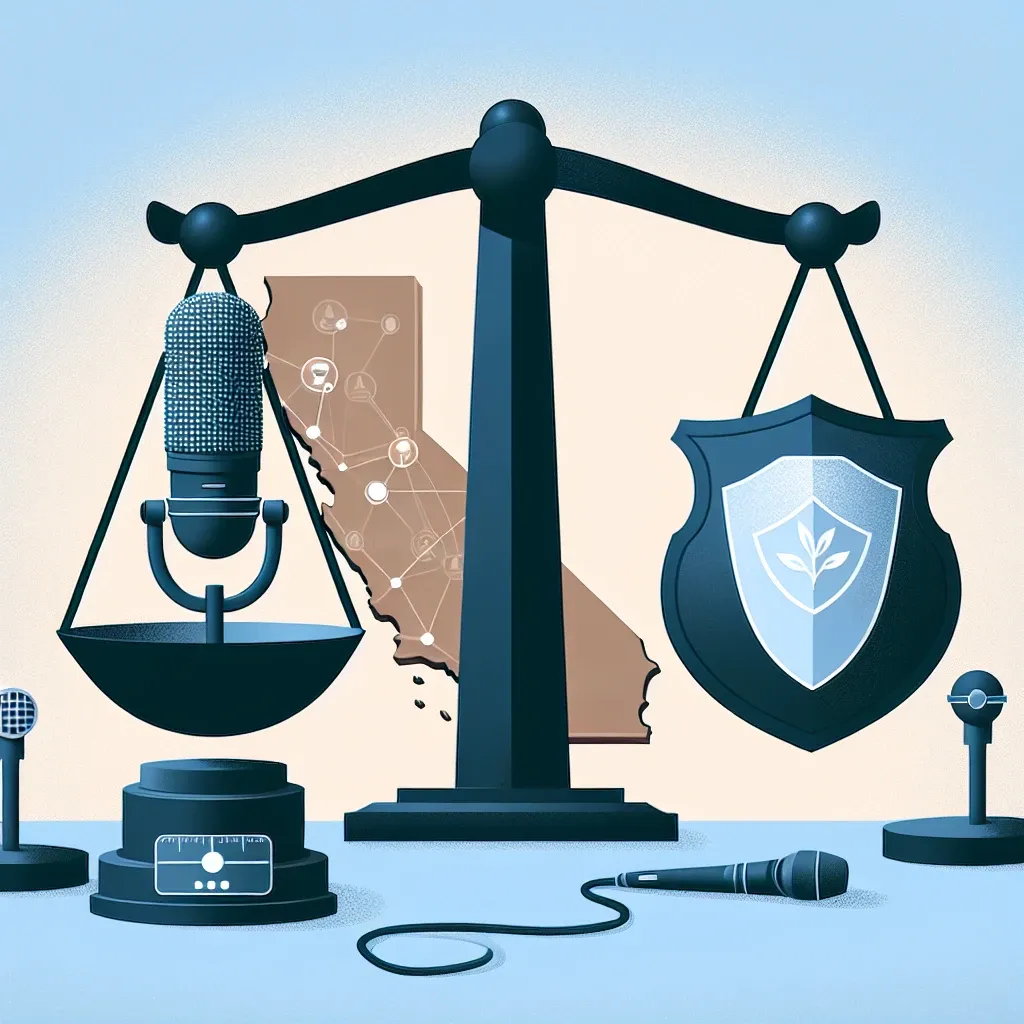Understanding AI Voice Cloning Regulation in California
In a groundbreaking move, California has enacted new regulations aimed at addressing the growing concerns surrounding AI voice cloning technology. This decision comes amidst mounting fears about identity theft and the potential misuse of voice cloning to deceive individuals and businesses alike. As technology continues to evolve, so does the need for appropriate measures to safeguard personal information and preserve trust in digital interactions.
The Rise of AI Voice Cloning
AI voice cloning technology has made significant advancements in recent years, enabling users to create highly realistic voice replicas from minimal audio input. These digital voice models are generated using sophisticated algorithms that analyze and replicate speech patterns, intonations, and unique vocal characteristics. While this innovation has notable benefits in various sectors, including entertainment, customer service, and accessibility, it has also raised alarms regarding misuse.
Identity Theft: A Growing Concern
The ability to clone someone’s voice raises serious identity theft issues. Fraudsters can use voice replicas to impersonate individuals for fraudulent purposes, such as gaining unauthorized access to accounts or conducting scams via phone calls. Recent incidents have illustrated how voice cloning technology has enabled criminals to impersonate CEOs and executives, leading to substantial financial losses.
California’s Legislative Response
In light of these concerns, California legislators have stepped in to regulate AI voice cloning technology. The new laws aim to establish clear guidelines for the ethical use of voice cloning, addressing issues of consent, usage rights, and potential liabilities for misuse. These regulations mark a proactive approach to protect individuals’ identities while allowing for continued innovation in the field.
Key Provisions of the Regulation
- Informed Consent: Individuals must provide explicit consent before their voice can be cloned or used for any commercial purposes.
- Accountability: Companies utilizing voice cloning technology will be held accountable for misuse and must implement measures to prevent identity fraud.
- Transparency: Organizations must disclose the use of AI voice cloning in interactions, ensuring that consumers are aware they may be speaking with a digital voice.
- Penalties: Violations of these regulations may result in significant fines and legal repercussions for offending companies.
Implications for Businesses and Consumers
The implementation of these regulations will undoubtedly affect how businesses operate, particularly those in customer service and marketing sectors that leverage voice technology. Companies need to adapt their practices to comply with the new laws while continuing to provide innovative solutions. For consumers, these regulations offer a layer of security, ensuring that their identities are better protected against potential threats.
Future Predictions: Balancing Innovation and Security
As AI voice cloning technology continues to develop, it is essential for lawmakers and industry leaders to strike a balance between innovation and security. The California regulation serves as a model for other states and countries grappling with similar issues. Future developments in voice cloning technology will likely prompt further legislative action as the landscape of identity theft evolves.
Pros and Cons of Voice Cloning Regulations
While the regulation marks an essential step toward safeguarding identity, there are both advantages and disadvantages to consider:
- Pros:
- Enhanced protection against identity theft.
- Increased consumer trust in digital interactions.
- Clear guidelines for ethical use of AI technology.
- Cons:
- Potential stifling of innovation in the tech sector.
- Increased compliance costs for businesses.
- Challenges in enforcing regulations across digital platforms.
Real-World Examples of Voice Cloning Misuse
Several high-profile cases have highlighted the dangers associated with voice cloning technology. For instance, in a notable incident, a fraudster impersonated a CEO’s voice to authorize a $243,000 wire transfer to a third party. Such events underscore the urgent need for regulations that hold individuals and organizations accountable for the use of voice technology.
Expert Opinions on Regulation
Experts in the field emphasize the importance of proactive measures in regulating AI voice cloning. Dr. Lisa Chen, a prominent AI ethicist, states, “As technology evolves, so must our approaches to regulation. It’s crucial that we ensure ethical practices to maintain public trust while fostering innovation.”
Cultural Relevance and Public Perception
The cultural impact of AI voice cloning technology has also sparked conversations about authenticity and representation in media. As audiences become more aware of the capabilities of AI, there is a growing demand for transparency and ethical considerations regarding the use of digital voices in entertainment, advertising, and more.
Conclusion: The Path Forward
California’s new AI voice cloning regulations are a significant step in the right direction, addressing the urgent need for identity protection in an increasingly digital world. As technology continues to advance, it is imperative that legislators, businesses, and consumers work together to navigate the challenges posed by voice cloning and ensure that innovation is accompanied by responsibility and accountability. With these regulations in place, California sets a precedent for other states to follow, highlighting the importance of protecting individual rights in the age of AI.
